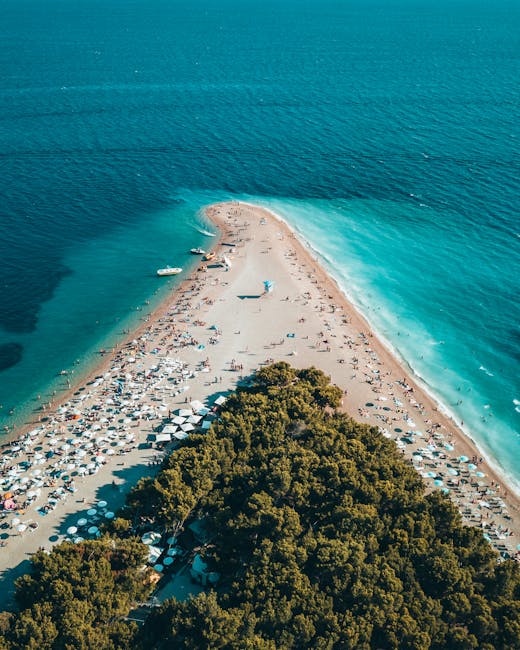


 Croatia
Croatia
Croatia is a stunningly beautiful country located in the heart of Europe. With its stunning coastline, picturesque islands, and vibrant cities, Croatia is an ideal destination for travelers looking for a unique and unforgettable experience. From the ancient city of Dubrovnik to the stunning Plitvice Lakes National Park, Croatia offers something for everyone. Whether you're looking for a relaxing beach holiday or an adventure-filled exploration of the country's many attractions, Croatia has it all. With its rich culture, delicious cuisine, and friendly locals, Croatia is sure to be a memorable travel destination.
Activities: Surfing, Stand-up paddle boarding, Windsurfing, Canoeing, Rafting, Snorkeling, Skiing, Mountain biking, Hiking, Camping, Rock climbing, Caving, Safari
Landscapes: Islands, Beaches, Forests, Woodlands, Mountains, Rivers, Lakes
Topics: Cities, Nature, Wildlife, Food, Wine, Art, Music, History, Festivals, Backpacking, Adventure
Is Croatia expensive?
Croatia currency
€Euro (EUR)
Weather in Croatia
Croatia has a Mediterranean climate, with hot, dry summers and mild, wet winters. In the summer months (June to August), temperatures can reach up to 30°C (86°F) during the day and drop to around 15°C (59°F) at night. The winter months (December to February) are much cooler, with temperatures ranging from 5°C (41°F) during the day to -2°C (28°F) at night. Rainfall is fairly evenly distributed throughout the year, with the most rain falling in October and November.
- Yearly temperature range: 3°C - 30°C
- Monthly rainfall range: 51mm - 99mm
- Daily sunshine range: 3h - 11h
Traveling Croatia
Car
Renting a car is the most popular way to get around Croatia. You can rent a car from any major city or airport.
Car rentalBus
Buses are a great way to get around Croatia, with routes connecting all major cities and towns.
Train
The Croatian Railways network connects all major cities and towns in Croatia.
Ferry
Ferries are available to take you between the mainland and the islands of Croatia.
Is Croatia safe?
Crime
The crime rate in Croatia is relatively low compared to other European countries. The most common crimes are pickpocketing, purse snatching, and theft from parked cars. Violent crime is rare, but it does occur. Tourists should be aware of their surroundings and take precautions to protect their belongings. It is also important to be aware of local laws and customs when traveling in Croatia.
Travel advisory
2.8/5Croatia has a current risk level of 2.8 (out of 5). We advise: Use some caution when travelling Croatia.Last updated: Thu Mar 23 2023
Health
Health Considerations
Travelers to Croatia should be up to date on routine vaccinations, including measles-mumps-rubella (MMR) vaccine, diphtheria-tetanus-pertussis vaccine, varicella (chickenpox) vaccine, polio vaccine, and your yearly flu shot. Additionally, travelers should consider getting vaccinated for hepatitis A and B, typhoid, and rabies if they plan to spend a lot of time outdoors or in rural areas.
Food and Water Safety
It is important to take precautions when eating and drinking in Croatia. Avoid tap water unless it has been boiled, filtered, or chemically disinfected. Stick to bottled water when possible. Make sure all fruits and vegetables are washed thoroughly before eating them. Avoid raw or undercooked meats and seafood.
Croatia customs and etiquette
Be Respectful
Be mindful of local customs and traditions, dress modestly, and be respectful of religious sites.
Be Courteous
Greet people with a handshake and address them by their title and surname.
Be Polite
Use polite language when speaking to locals, avoid using slang or profanity.
Be Tolerant
Respect the opinions of others, even if they differ from your own.
Be Considerate
Avoid loud conversations in public places, respect the privacy of others, and be mindful of noise levels.
Be Aware of Local Laws
Familiarize yourself with local laws and regulations before traveling to Croatia.
TP
Copyright 2023